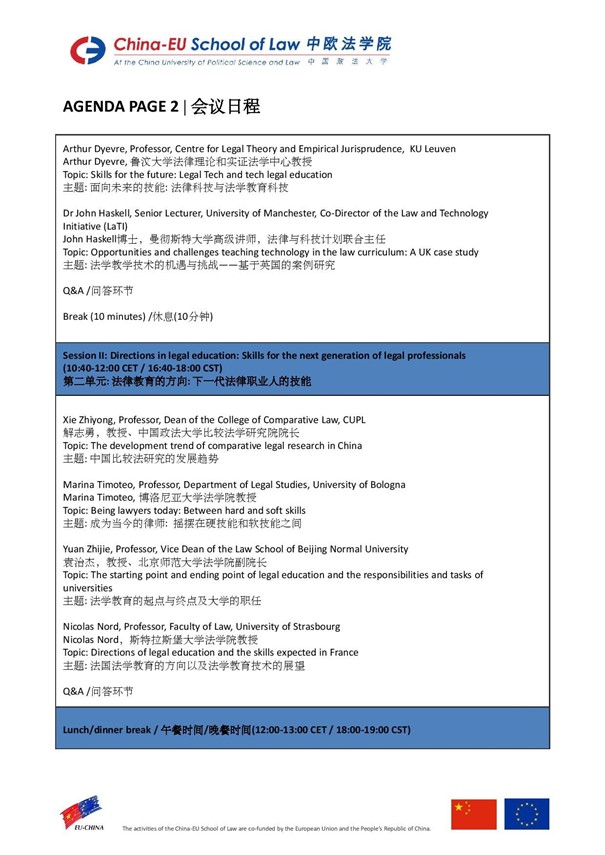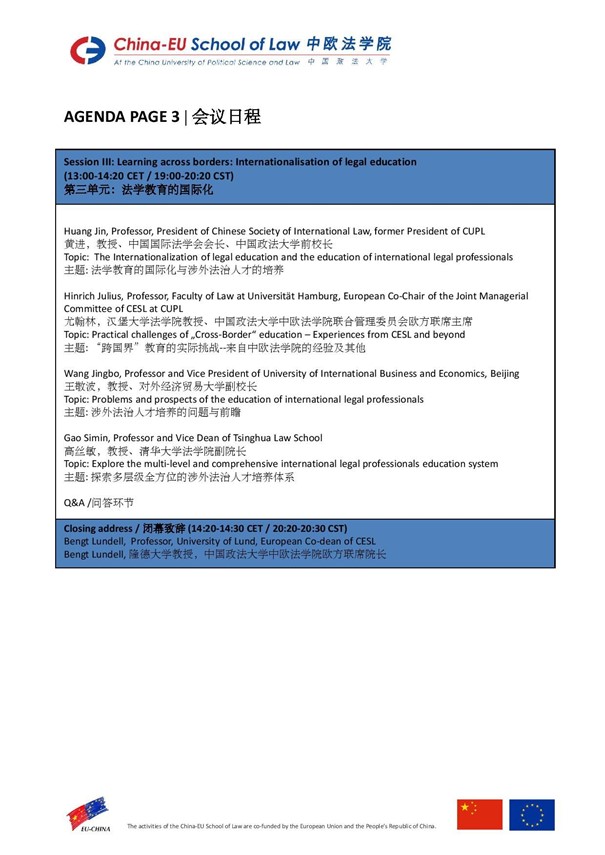The Covid-19 pandemic has made law lecturers and law students even more aware of the importance of teaching methods and the design of law programmes. On Friday the 28th of May 2021, around fifty legal professors, researchers and students from a multitude of countries gathered virtually to discuss the development of legal education in China and Europe. The conference, which was successfully organised by the China-EU School of Law (CESL), was divided in three sessions and covered the experiences of teaching online during the COVID-19-pandemic, the use of technology in legal education, directions in legal education and skills needed for the next generation of lawyers, as well as the internationalisation and cross-border legal education.
Experiences from the challenge of shifting entirely to online teaching were discussed. The Corona pandemic has shown that change is possible – digital teaching does work. Although online classes will never replace physical meetings, it offers flexibility. It was suggested that legal educators should seize the moment and develop new models of online education, rather than simply expecting things to go back to square one after the epidemic. Law schools should try to improve communication between teachers and students and develop ways on how to best make use of the available teaching resources.
Further, speakers presented their views on the current development and directions of legal education at their universities. Different opinions focusing rather on soft skills or on hard skills, general or more specialised law programmes, analytical and problem-based teaching, flexibility in the curriculum, and interdisciplinarity – enabling possibilities to combine law studies with other academic subjects – as well as including more Legal Tech into the law curriculum were discussed. Law schools today need to prepare their students to have the tools to work with the law during the next 45 years of their working life, while the laws will be changing.
In China the internationalisation of legal education has become an important topic in the past years as it opened up new possibilities for legal education – with the CESL being a notable example of this development. The importance of foreign language knowledge and benefits of mutual exchange were pointed out by several speakers. Cross-border legal education is, however, often faced with practical and administrative challenges. In today´s global world lawyers also need to be prepared for working in an international environment.



